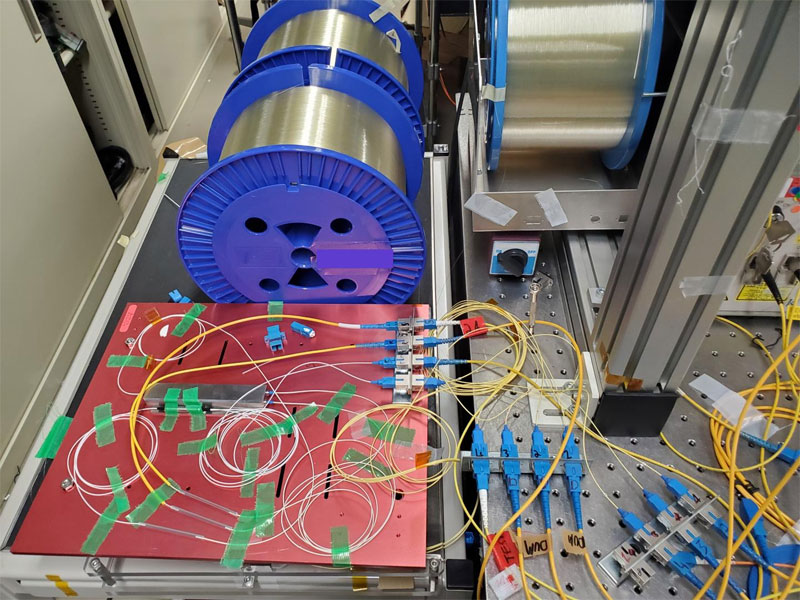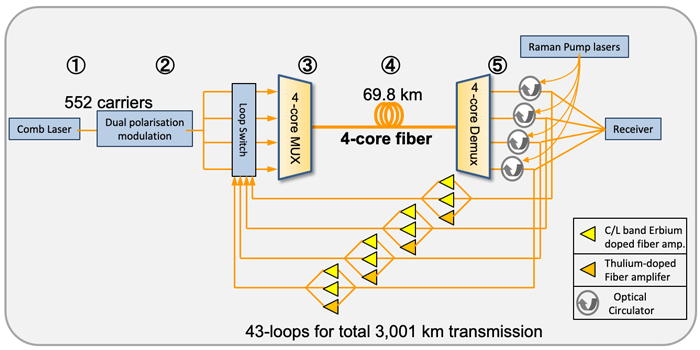
19th July 2021 Japan sets new Internet speed record: 319 Tbit/s Researchers at the National Institute of Information and Communications Technology (NICT) based in Tokyo, Japan, have achieved a data transmission rate of 319 terabits per second (Tbit/s). Not only did they smash the previous record of 178 Tbit/s set in August 2020, they also achieved this over a much greater distance – 3,001 km (1,865 mi), compared to just 40 km (25 mi) before. Japan's current average speed for fixed broadband is 176 Mbps, or about 1.8 million times slower. The team used wavelength-division multiplexed channels in a 4-core optical fibre, combined with various techniques. To begin with, a 552-channel "comb" laser fires at various wavelengths. These light streams are processed and enhanced by new kinds of amplifiers doped in two rare earth elements – thulium and erbium. This is followed by Raman amplification. A total of 43 loops are used to extend the data transmission over an incredible length, without any loss in performance. The fibres have a standard-cladding diameter and compatibility with existing cabling technologies.
The results of this experiment have been accepted as a post-deadline paper presentation at the International Conference on Optical Fibre Communications (OFC2021), one of the world's largest conferences related to optical fibre communication, this year held virtually. "We demonstrate the recirculating transmission of 552 x 25 GHz spaced channels covering >120 nm of S, C, and L-bands in a 125μm diameter, 4-core fiber, measuring a decoded throughput of 319 Tb/s at 3,001 km," the paper explains. "Beyond 5G, an explosive increase from new data services is expected," the researchers write. "Therefore, it is crucial to demonstrate how new fibres can meet this demand. Hence, it is hoped this result will help the realisation of new communication systems that can support new bandwidth-hungry services." For now, this remains at the cutting edge of Internet technology and is confined to strictly controlled laboratory conditions. It does, however, provoke us to imagine the sort of home comforts we might enjoy in the next 20 to 30 years, and the endless applications for business and society at large.
Comments »
If you enjoyed this article, please consider sharing it:
|








